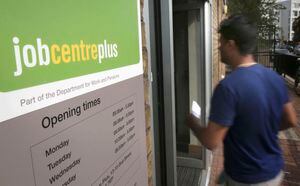Unemployment falls in the West Midlands
Unemployment continued to fall in the West Midlands in the three months to September with 8,000 fewer out of work.

The 155,000 registered as unemployed represents a regional unemployment rate of 5.5 per cent – the joint highest in the UK – and the employment rate of 72.4 per cent is the second lowest in the country.
Nationally unemployment was down by 59,000 to 1.4 million, the lowest figure in more than 12 years with a rate of 4.3 per cent, the latest Office for Nationals Statistics figures revealed.
The number of people in work fell by 14,000 – the biggest reduction in more than two years – to just over 32 million.
Average earnings increased by 2.2 per cent in the year to September, down by 0.1 per cent on the previous month and by 0.3 per cent on a year ago.
Nationally the claimant count, those claiming unemployment-related benefits, increased by 1,100 to 806,100 last month.
For the West Midlands it was down 1,295 to 84,620 or 2.3 per cent of the working population.
The biggest falls in the region were of 115 in both Wolverhampton and Sandwell. Wolverhampton's total stood at 8.605 (4.1 per cent) and Sandwell was 6,950 (3.4 percent).
There was a fall of 110 in Walsall to 4,775 (2.8 per cent), but Dudley saw a rise of 95 to 5,975 (3.1 per cent).
Across Staffordshire there were 110 fewer claiming at 5,375 (one per cent) with both Cannock Chase and Stafford having falls of 30. Stafford stood at 700 (0.8 per cent) and Cannock at 750 (1.2 per cent). South Staffordshire has 15 more claiming at 780 (1.2 per cent) and Lichfield also had a rise of 10 to 465 (0.8 per cent).
For Wyre Forest, which includes Kidderminster, the claimant total; was down by 40 to 800 (1.4 per cent).
Employment minister Damian Hinds said: "The strength of the economy is driving an increase in full-time, permanent jobs and a near-record number of people are now in work thanks to the Government's welfare reforms.
"When unemployment fell to five per cent early last year, many people thought it couldn't get much lower, and yet it now stands at 4.3 per cent.
"Everyone should be given the opportunity to find work and enjoy the stability of a regular pay packet. We've cut income tax for 30 million people since 2010, meaning people keep more of their money each month."





